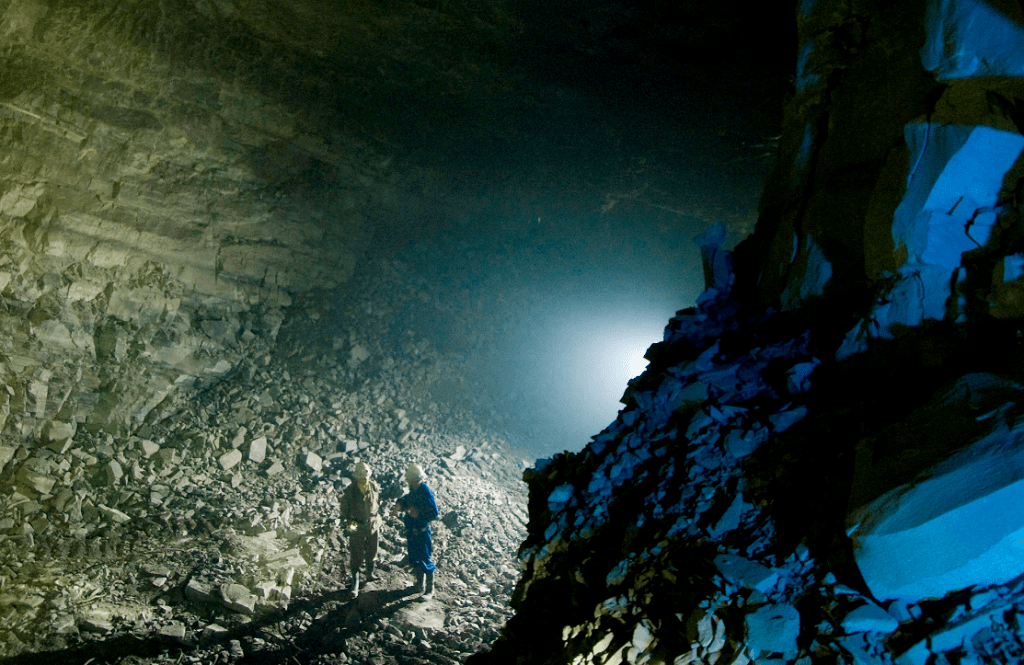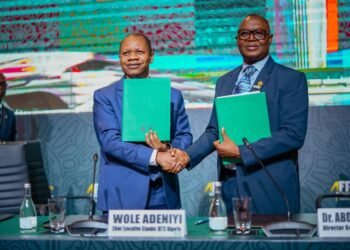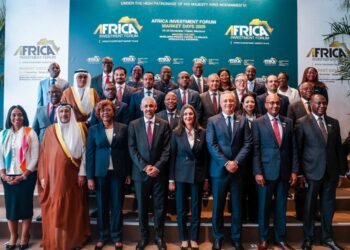The President of the African Development Bank is urging an end to loan agreements that hinge on the exchange of the continent’s abundant oil and crucial minerals used in smartphones and electric car batteries.
Such deals, which have contributed to China’s dominance in mineral mining in countries like Congo, have also plunged some African nations into financial turmoil.
Akinwumi Adesina criticized these transactions, stating, “They are just bad, first and foremost, because you can’t price the assets properly. If you have minerals or oil under the ground, how do you come up with a price for a long-term contract? It’s a challenge.”
The practice of tying future revenue from natural resource exports to loan repayments is commonly presented as a means for recipients to secure funding for infrastructure projects while providing lenders with a safeguard against the risk of non-repayment.
The transition to renewable energy and electric vehicles has led to a surge in demand for critical minerals, prompting an increase in loans structured around these resources.

One notable example is a deal between China and Congo, which bolsters Beijing’s position in the global supply chain for electric vehicles and other products.
This agreement allows China access to Congo’s vast cobalt reserves, crucial for manufacturing lithium-ion batteries, positioning the impoverished Central African country as a significant player in this market.
Adesina, whose Abidjan, Ivory Coast-based institution helps finance development in African countries, pointed out numerous issues associated with such arrangements.
He emphasized the unequal nature of negotiations, where lenders often exert significant influence over cash-strapped African nations, dictating terms to their advantage.
Adesina also raised concerns about the lack of transparency and the potential for corruption within these agreements, creating an environment ripe for exploitation.
“These are the reasons I say Africa should put an end to natural resource-backed loans,” Adesina said.
Adesina highlighted the complexities posed by loans collateralized with natural resources, presenting a significant challenge for development banks such as his own and the International Monetary Fund (IMF), both of which advocate for sustainable debt management.
Adesina’s Warning and Solutions
According to Adesina, countries facing this arrangement may encounter difficulties in obtaining or repaying loans from these institutions.
He singled out Chad as a poignant example, citing the country’s severe financial crisis following an oil-backed loan from commodity trader Glencore.
This loan left Chad heavily reliant on its oil earnings to meet debt obligations, resulting in significant economic strain.
After Chad, Angola, and the Republic of Congo approached the IMF for support, the multilateral lender insisted on the renegotiation of their natural resource-backed loans.
At least 11 African countries have taken dozens of loans worth billions of dollars secured with their natural resources since the 2000s, and China is by far the top source of funding through policy banks and state-linked companies.
Western commodity traders and banks, such as Glencore, Trafigura, and Standard Chartered, also have funded oil-for-cash deals, notably with the Republic of Congo, Chad, and Angola.
Adesina clarified that criticisms about loans tied to natural resources are not focused on a specific country.
Adesina also mentioned recent resource-backed loan agreements between China and countries like Guinea and Ghana.
“It is not about one country or the other; any country can exploit when you don’t know what you are doing,” he said, adding, “The capacity to negotiate at the country level, the capacity to plan, the capacity for debt management is very important.”
However, Mao Ning, spokesperson for China’s Ministry of Foreign Affairs, told reporters last year that Beijing operates with the “principle of transparency and openness” in relations with Africa.
READ ALSO: Haiti A Failed State?























